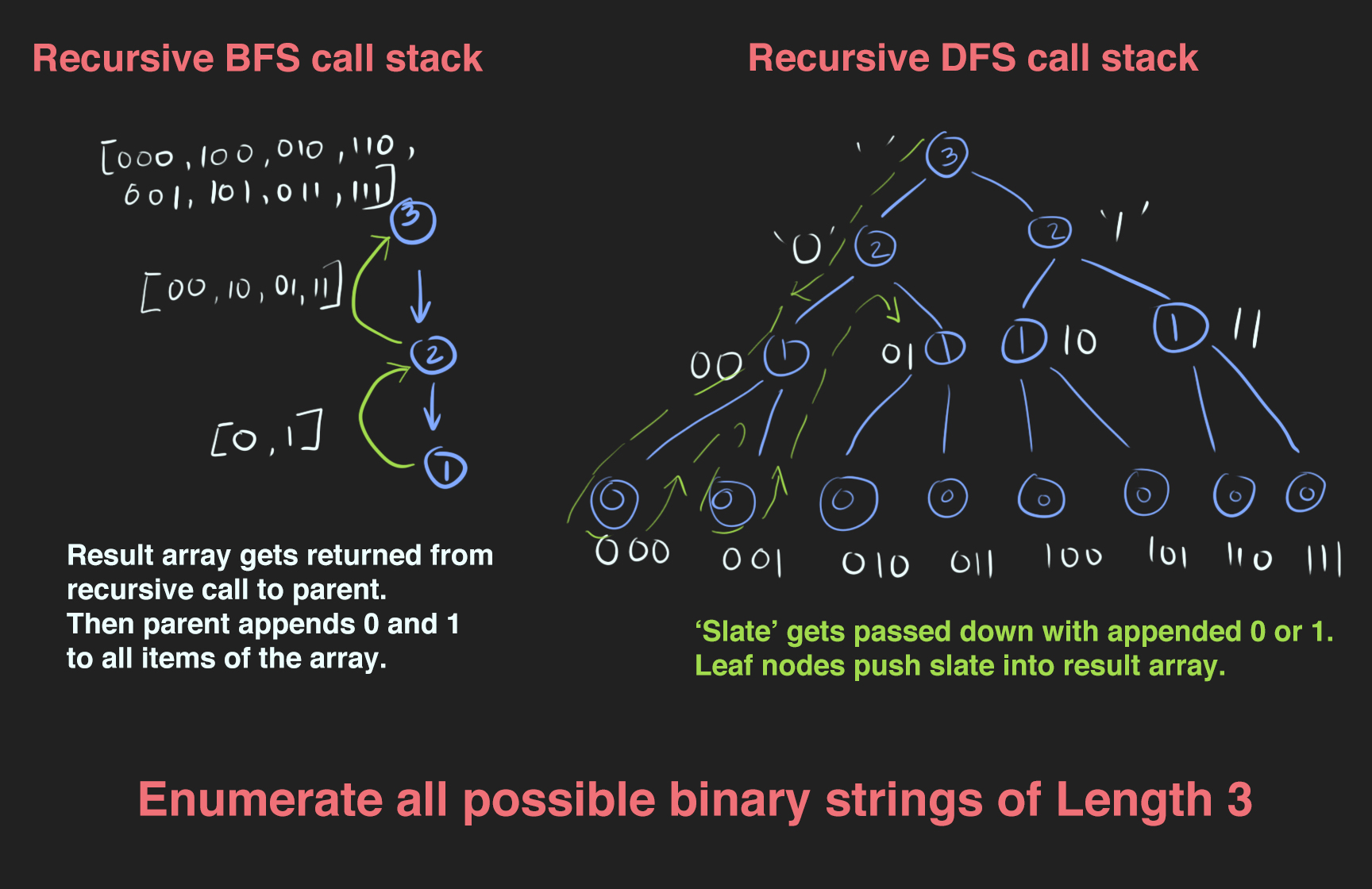Enumerate all possible binary strings of length n.
 Call stack for Recursive functions — BFS and DFS
Call stack for Recursive functions — BFS and DFS
BFS Recursive decrease-and-conquer
/*
Time Complexity - O(n * 2^n)
Space Complexity - O(2^n)
*/
function rBinaryStrings(n) {
if (n < 0) return []
else if (n === 1) return ['0', '1']
else {
const prev = rBinaryStrings(n - 1),
result = []
for (const s of prev) {
result.push(s + '0')
result.push(s + '1')
}
return result
}
}Iterative decrease-and-conquer
/*
Time Complexity - O(n * 2^n)
Space Complexity - O(2^n)
*/
function iBinaryStrings(n) {
if (n < 1) return []
let result = ['0', '1']
for (let i = 2; i <= n; i++) {
const newResult = []
for (const s of result) {
newResult.push(s + '0')
newResult.push(s + '1')
}
result = newResult
}
return result
}DFS Recursive divide-and-conquer
/*
Time Complexity - O(n * 2^n)
Space Complexity - O(n). Height of tree or length of prefix of partial slate which increases with depth.
*/
function binaryStrings(n) {
if (n < 1) return []
const result = []
bsHelper('', n)
return result
function bsHelper(slate, n) {
if (n === 0) result.push(slate)
else {
bsHelper(slate + '0', n - 1)
bsHelper(slate + '1', n - 1)
}
}
}Tests:
// Tests
const tests = [
[2, ['00', '01', '10', '11']],
[3, ['000', '001', '010', '011', '100', '101', '110', '111']],
[1, ['0', '1']],
[0, []],
]
console.log('Recursive decrease-and-conquer')
for (const test of tests) {
const res = rBinaryStrings(test[0])
console.log(test[0], res)
console.log(JSON.stringify(res) === JSON.stringify(test[1]))
}
console.log('Iterative decrease-and-conquer')
for (const test of tests) {
const res = JSON.stringify(iBinaryStrings(test[0]))
console.log(res === JSON.stringify(test[1]))
}
console.log('Recursive divide-and-conquer')
for (const test of tests) {
const res = JSON.stringify(binaryStrings(test[0]))
console.log(res === JSON.stringify(test[1]))
}